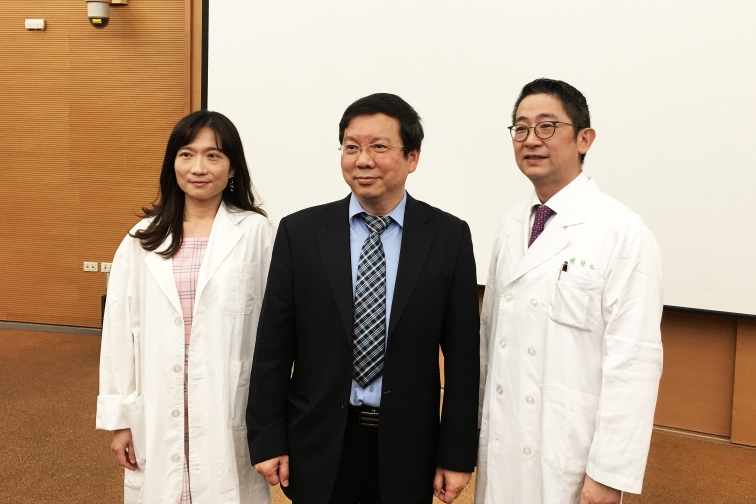Date: 2017-11-10
Dr. Shi-Liang Hsieh and his team have done years of searching in order to find answers to inflammations. Lately, he and his team have unveiled a new role of the DcR3 protein molecule and published their finding in The Journal of Pathology. Their article is entitled: “DcR3 Promotes Cell Adhesion and Enhances Endometriosis Development”.
Menstrual cramp is not an unfamiliar matter for half of the world’s population. Most women, if they have not experienced it, would have known it from their female friends. Although there may be various reasons for such cramp, if the pain is caused by endometriosis, women should probably not just take a pain killer and hope that it will go away someday.
Endometriosis is a symptom in which endometrial cells of the uterus retrograde into the pelvic area and flourish outside of the ovaries. Besides pelvic pain, it may lead to infertility.
DcR3 has been a target of cancer studies. There were reports illustrating its role in enhancing cancer cell growths. Curiosity has led Hsieh and his team to explore its role in other areas. So far they have already identified the beneficial role of DcR3 in regenerating damaged spinal cells and reducing Amyloid-β in Alzheimer’s disease . The latest finding adds more mystery to DcR3. However, as the mechanism of endometriosis is finally revealed, a root-cause solution is promising.
The study was carried out in collaboration with Dr. Yi-Jen Chen from Taipei Veterans General Hospital and Dr. Hsiao-Wen Tsai from Kaohsiung Veterans General Hospital.
First, a comparison of clinical data revealed that DcR3 was definitely overexpressed in endometriosis patients. It was even more startling when they later saw how wildly the endometriosis tumor would grow in transgenic mice. From their experiment, it appeared that DcR3 has a way of promoting cell adhesion, thus providing endometriosis development a solid ground. On the other hand, knockdown of DcR3 downregulates the expression of ICAM-1 and HCAM, which are the cells that make ectopic endometrial cells adhesive, which, in turn, reduces cell adhesion and migration.
The study suggests that DcR3 plays a critical role in the pathogenesis of endometriosis and that inhibition of DcR3 expression is a promising approach for treating endometriosis.
-
Ms. Shih-Wen Huang, Secretariat, Academia Sinica
(02) 2789-9868,shihwen@as.edu.tw
-
Chang-Hung Chen, Public Affairs Section, Secretariat, Academia Sinica
(02) 2789-8059,changhung@as.edu.tw









 Home
Home

